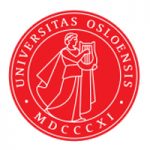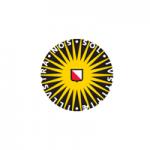项目介绍
About the position
Two (2) positions as PhD Research Fellow in machine learning available at the Department for Informatics with the research group Digital Signal Processing and Image Analysis (https://www.mn.uio.no/ifi/english/research/groups/dsb/index.html) as part of Visual Intelligence (http://visual-intelligence.no), Norway’s leading research centre in deep learning for image analysis.
No one can be appointed for more than one PhD Research Fellowship period at the University of Oslo. Starting date no later than October 1, 2025.
The fellowship period is three (3) years.
An extension of the appointment by up to twelve months may be considered, which will be devoted to career-enhancing compulsory work duties, e.g. teaching or supervision. This will be dependent on the qualifications of the applicant and the specific teaching needs of the department.
All candidates and projects will have to undergo a check versus national export, sanctions and security regulations. Candidates may be excluded based on these checks. Primary checkpoints are the Export Control regulation, the Sanctions regulation, and the national security regulation.Jarli & Jordan/ UiO

Job description
Two phd positions are open. They are both focused on deep learning for images. Position 1 focuses on earth observation. Position 2 focuses on image data for monitoring marine ecosystems. You must indicate in your application if you apply for both projects, or if you apply only for one of the projects. State Project 1 for earth observation, and Project 2 for marine images. We encourage you to apply for both projects. You may indicate if you prefer one of the two positions, but still apply to both.
Position 1: earth observation
You are keen on contributing to new advances in deep learning methodology for earth observation. You will work on deep learning methods for detection of oil spills in the ocean based on satellite imagery. A key focus will be to develop a multi-modal oil spill segmentation approach based on current satellite imagery, previous observations in the area, weather parameters like wind speed and direction, and prior knowledge about the way oil spills and natural phenomena in the ocean can appear given the observed data. The models can build on recent research results in foundational neural network models.
The work will be done in collaboration with Kongsberg Satellite Services in Tromsø. The position is located in Oslo, but regular visits to Tromsø are expected.
Position 2: marine imaging
You are keen on contributing to new advances in deep learning methodology for monitoring marine ecosystems. This can be data collected about the marine environment from, e.g., satellites, sonar images, or underwater video from AUVs. The research will be done in cooperation with the Institute of Marine Research.
The core of the position will be on development of new deep learning methods for segmentation/classification of data with limited and weak labels and imbalanced data sets. Your work can build on recent progress in unsupervised learning and foundational neural network models.
You can also focus on challenges related to modelling prior knowledge, incorporating uncertainty, or methods with improved explainability.
Common for both positions:
Your interests are in neural networks research. You have a strong motivation to both contribute to new methods in neural networks, and to develop models suited to the particular application.
The positions are in the Digital Signal Processing and Image Analysis (DSB) research group, Section for Machine Learning, Department of Informatics. For more information about the position, see https://www.visual-intelligence.no/about/open-positions. You will be part of Visual Intelligence and the DSB research group. We expect that you will engage in collaborative research with other members of the centre and the research group. You will collaborate with user partners within Visual Intelligence, to contribute to the centre’s seminars, to collaborate across innovations areas within the centre, and to seek collaboration between the research partners within the centre. You will be part of a network of young researchers in deep learning in the Visual Intelligence Graduate School https://www.visualintelligence.no/about/vigs
Qualification requirements
The Faculty of Mathematics and Natural Sciences has a strategic ambition to be among Europe’s leading communities for research, education and innovation. Candidates for these fellowships will be selected in accordance with this, and expected to be in the upper segment of their class with respect to academic credentials.
- Master’s degree or equivalent, preferably in machine learning or equivalent fields. A background in computer science/physics/statistics/applied mathematics/electrical engineering can also be considered given that the candidate has formal competence in machine learning and/or image analysis/computer vision.
- A solid and documented background in machine learning, mathematics, linear algebra, and/or statistics.
- Documented knowledge and experience in Python programming.
- Foreign completed degrees (M.Sc.-level) must correspond to a minimum of four years in the Norwegian educational system.
- Fluent oral and written English communication skills
Candidates without a master’s degree have until 30 June 2025 to complete the final exam.
Desired qualifications:
- Solid experience with deep learning frameworks like TensorFlow or PyTorch
- Demonstrated ability to conduct independent or collaborative research
Grade requirements:
- The average grade point for courses included in the Bachelor’s degree must be C or better in the Norwegian educational system
- The average grade point for courses included in the Master’s degree must be B or better in the Norwegian educational system
- The Master’s thesis must have the grade B or better in the Norwegian educational system
Language requirements:
- Fluent oral and written communication skills in English
English requirements for applicants from outside of EU/EEA/EFTA countries and exemptions from the requirements:
The purpose of the fellowship is research training leading to the successful completion of a PhD degree. For more information see:
Personal skills
- Solid analytical skills
- Dedication to work with important applications
- Ability to lead and conduct research in a collaborative environment
- Ability to work independently as well as in multidisciplinary teams
- Ability to give and receive constructive scientific criticism
We offer
- Salary NOK 536 200 – 575 400 per year depending on qualifications and seniority as PhD Research Fellow (position code 1017).
- Attractive welfare benefits and a generous pension agreement
- Vibrant international academic environment
- Career development programmes.
- Oslo’s family-friendly surroundings with their rich opportunities for culture and outdoor activities
Inclusive worklife and diversity at UiO
Inclusion and diversity are a strength. The University of Oslo has a personnel policy objective of achieving a balanced gender composition. Furthermore, we want employees with diverse professional expertise, life experience and perspectives.
If there are qualified applicants with disabilities, employment gaps or immigrant background, we will invite at least one applicant from each of these categories to an interview.
We hope that you will apply for the position.
More information about gender equality initiatives at UiO can be found here.
How to apply
The application must include:
- Cover letter – statement of motivation and research interests
- CV (summarizing education, positions and academic work – scientific publications)
- Copies of the original Bachelor and Master’s degree diploma, and transcripts of records
- Documentation of English proficiency
- List of publications and academic work that the applicant wishes to be considered by the evaluation committee
- Names and contact details of 2-3 references (name, relation to candidate, e-mail and telephone number)
When applying for the position, we ask you to retrieve your education results from Vitnemålsportalen.no. If your education results are not available through Vitnemålsportalen, we ask you to upload copies of your original transcripts or grades. Please note that all documentation must be in English or a Scandinavian language. Foreign applicants should attach an official explanation of their University’s grading system.
The application with attachments must be delivered in our electronic recruiting system (please follow the link “Apply for this job”).
General information
The best qualified candidates will invited for interviews.
Applicant lists can be published in accordance with Norwegian Freedom of Information Act § 25. When you apply for a position with us, your name will appear on the public applicant list. It is possible to request to be excluded from this list. You must justify why you want an exemption from publication and we will then decide whether we can grant your request. If we can’t, you will hear from us.
Please refer to Regulations for the Act on universities and colleges chapter 3 (Norwegian), Guidelines concerning appointment to post doctoral and research posts at UiO (Norwegian) and Regulations for the degree of Philosophiae Doctor (PhD) at the University of Oslo.
The University of Oslo has a transfer agreement with all employees that is intended to secure the rights to all research results etc.
联系方式
电话: (+47) 22 85 50 50相关项目推荐
KD博士实时收录全球顶尖院校的博士项目,总有一个项目等着你!





